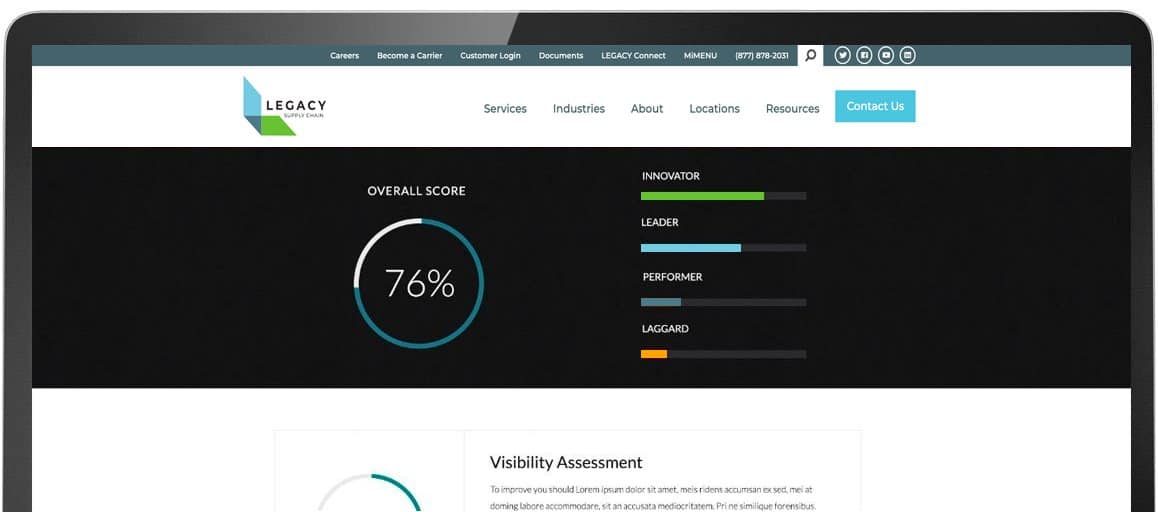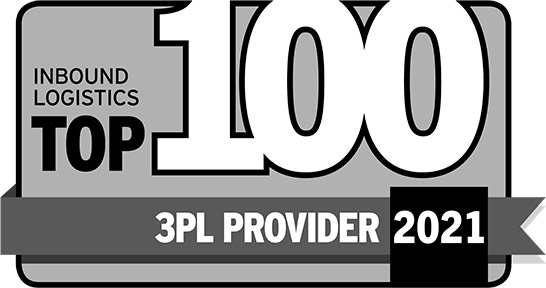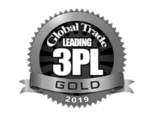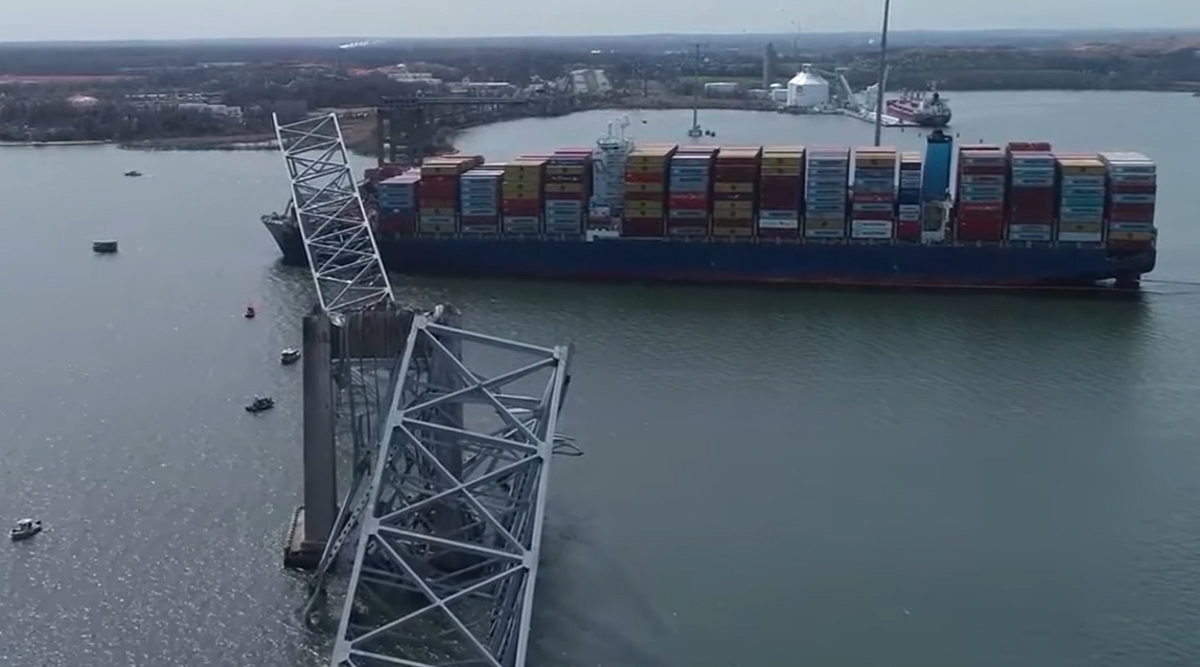Is It Time to Outsource Ecommerce Fulfillment? Here’s How to Know

Transitioning from in-house eCommerce fulfillment can be intimidating — it involves a loss of control and ownership over certain processes. It can also be a smart financial decision that frees up resources so you can prioritize growth in other areas of the business.
In this article, we explore the benefits of outsourcing eCommerce fulfillment, identify the key signs that signal readiness for the transition and explain how to best manage the change in the fulfillment process.
- What is eCommerce Outsourcing?
- In-House vs. Outsourced Fulfillment
- 5 Reasons to Outsource eCommerce Fulfillment
- When to Outsource eCommerce Fulfillment
- When Not to Outsource eCommerce Fulfillment
- How to Transition from In-House to Outsourcing
- What to Look for In a Fulfillment Partner
- eCommerce Outsourcing FAQs
What Is eCommerce Outsourcing?
ECommerce outsourcing refers to a scenario in which an eCommerce business relies on a third-party logistics provider (3PL) to handle all or some of their fulfillment process.
The 3PL provides services such as order processing, returns management, packing and shipping and more. Most full-service 3PL providers have adequate materials, storage space, labor and technological infrastructure to handle large volumes of orders for multiple eCommerce partners at once.
In-House vs. Outsourced Fulfillment
The alternative to outsourcing eCommerce fulfillment is to keep the process in-house. In this scenario, the eCommerce business manages all aspects of fulfillment from start to finish, from inventory management to sales to packing, shipping and returns. In-house fulfillment is common among new or smaller businesses, since it is much more cost-effective and easy enough to manage with a smaller internal team.
When eCommerce merchants have enough business to outsource this portion of their operations, they rely on a third party to manage some or all of the following:
- Warehousing
- Picking
- Packing
- Shipping
- Returns processing
This enables the eCommerce merchant to focus on sales, product development, customer service and other value-adding facets of their business.
5 Reasons to Outsource eCommerce Fulfillment
Once business is booming, there are many reasons why outsourcing eCommerce fulfillment is a smart choice.
1. Access to advanced fulfillment capabilities
Self-fulfillment is expensive, time-consuming and can be complicated for smaller businesses. With a 3PL fulfillment partner, merchants no longer need to store inventory, pack orders by hand or manage a warehouse, not to mention they gain access to the latest fulfillment technology and capabilities.
2. Avoid hidden costs
Relying on a third party frees up time, money, space and personnel that could be better utilized to add value to the business. Many merchants don’t realize how expensive in-house fulfillment can be until they experience an alternative — outsourcing eCommerce fulfillment mitigates the financial strain of hidden costs.
3. Scalability
When there’s a 3PL partner in your corner, your business will be able to keep pace with changing demand without becoming overwhelmed by fulfilling orders in-house.
4. Leverage industry expertise and connections
Relying on an eCommerce fulfillment partner carries the added benefit of supply chain insight, experience and best practices. This means that, while in-house teams may not know the fastest carriers or lowest shipping rates, 3PLs do. They can make sure that orders reach their destination as quickly and cost-effectively as possible, even during peak seasons.
5. Improve the customer experience
ECommerce fulfillment companies specialize in clear communication and good follow-up practices. They can provide seamless post-purchase touchpoints for customers, boosting their perception of the merchant and contributing to a positive shopping experience.
When to Outsource eCommerce Fulfillment
When successful merchants reach the point where they can no longer handle their own fulfillment, they have an opportunity to add even more value to their business. So when is the right time to think about outsourcing eCommerce fulfillment?
Here are a few common scenarios that signal a necessary change:
- Your in-house team cannot pack and ship orders fast enough to keep pace with customer demand.
- Customers are getting frustrated with late shipments due to high volume.
- Manual processes are slowing down order fulfillment.
- Fulfillment and logistics management is taking time away from operating the business.
- Space for inventory is becoming increasingly limited.
- You have had to hire more staff just to keep pace with order volume.
- There is not enough money in the budget to invest in more storage space or fulfillment infrastructure.
When Not to Outsource eCommerce Fulfillment
Outsourcing may seem heaven-sent if you want a truly hands-off fulfillment arrangement. But there are a few cases in which it may not be the best idea.
1. You have low order volume.
If you’re a small or seasonal business, it doesn’t necessarily make the most sense to spend money on outsourcing something you likely have the capacity for in-house. If sales are down at certain times of the year, paying to outsource fulfillment only exacerbates the effects of lost or stagnant revenue. Consider part-time outsourcing if your sales fluctuate on a predictable annual schedule.
2. Each of your products is unique.
If you make your products to order or have an eclectic inventory (think furniture resellers or online second-hand stores), outsourcing fulfillment likely won’t work with your business model. Consider that sending handmade or customized items to a 3PL for fulfillment just adds an extra step (and more lead time) to the process; also, unique items have unique storage needs, which not all 3PLs can accommodate.
3. You have specialized storage needs.
Similarly, if your products are flammable, sensitive to temperature fluctuations, perishable or otherwise require special treatment, outsourcing fulfillment is not advised. Fulfillment centers have lots of capabilities, but they don’t have the capacity to radically alter their warehouse environment for one merchant’s products.
One final note: Customized packaging is often cited as another reason not to outsource, but some full-service 3PLs can fulfill subscription box orders and even design custom branded packaging.
How to Transition from In-House to Outsourcing
1. Determine your budget
In-house fulfillment may have become too expensive and time-consuming — but with that responsibility lifted from your team, how can you reallocate those funds to support a 3PL partnership? Determine how much you can spend on outsourcing eCommerce fulfillment before selecting a provider.
2. Gather all necessary data
In order to generate accurate quotes, 3PL providers will need some key information up front. Be prepared to provide data such as product weights and dimensions, current monthly order volume, average order value, the location(s) of your target customers and any business projections that will affect order volume.
3. Identify your must-haves
While merchants might assume 3PLs can “do it all,” some 3PL companies have limitations pertaining to product dimensions, weight, location, materials or order volume. Consider which elements of your fulfillment you are unwilling to compromise on, and discount 3PL providers that can’t or won’t meet those needs.
4. Compare 3PL candidates
Take pricing, locations, technology and customer service capabilities into account when comparing 3PL options. Create a pros and cons list, and try not to make trades or compromises for a lower price (cheaper does not necessarily mean better).
5. Complete the full onboarding process
A good 3PL provider will have an implementation team to help onboard you, connect your sales and fulfillment channels, and learn their requirements and protocols. It’s important to follow the 3PL’s exact protocols when it comes to preparing and sending inventory — just as you have standards for your business, 3PL providers have standards for theirs. Failure to comply with a fulfillment protocol can result in steep fines and a black mark on your business’ record.
What to Look for In a Fulfillment Partner
By and large, the concept of transactional vendor relationships is giving way to business “partnerships.” This is absolutely true of outsourcing eCommerce fulfillment — you want a fulfillment partner who is going to work with you (not just for you) while keeping the needs of your customers top of mind.
As you vet potential eCommerce fulfillment partners, look for the following qualities:
1. Multiple fulfillment centers
Fulfillment partners with multiple locations ensures that all your customers can be served as quickly as possible. Warehouses and processing centers in multiple regions keeps shipping costs down, cuts down on shipping times and allows 3PL providers to offer expedited shipping options.
2. Custom fulfillment services
You’ve worked hard to deliver a high quality purchasing experience to your customers from start to finish, so you want a 3PL partner who can maintain and even improve upon your standards. Value-adding fulfillment services such as inventory management, custom packaging, kitting and beautifully made inserts can set your eCommerce business apart from competitors by creating a memorable, scalable unboxing experience.
3. Excellent returns management
Almost nothing can turn a customer off faster than poor returns management. Paradoxically, a smooth return experience can boost customer satisfaction with a business and lead to long-term loyalty. An eCommerce fulfillment partner who can guarantee a hassle-free return experience can actually lead to more revenue for your business. Customers can shop with confidence knowing they won’t need to jump through hoops if a purchase doesn’t work out.
4. Advanced integration options
Logistics software that enables real-time shipment tracking — both for the merchant and the customer — is a fulfillment must-have today. With advanced software, eCommerce merchants gain access to analytics and performance metrics, while AI-powered customer service platforms can respond quickly to customer requests before escalating to a human agent. Look for 3PL partners whose software can integrate with both your eCommerce platform and major carriers to provide end-to-end visibility for all parties.
eCommerce Outsourcing FAQs
Is it cheaper to outsource fulfillment to a 3PL?
In many ways, yes. Outsourcing eCommerce fulfillment to a 3PL partner can lead to cheaper shipping costs, since 3PL providers can negotiate lower rates. Taking the pressure of fulfillment off of in-house teams can free them up to focus on more revenue-generating tasks such sales, brand development, customer service, marketing and product research and development. Spikes in demand can be overwhelming for new or smaller businesses, which may find themselves spending exorbitantly on in-house fulfillment just to get product out the door faster. Outsourcing the entire fulfillment process alleviates this pressure and can lead to higher customer satisfaction and loyalty (i.e., more sales).
How do I outsource my eCommerce fulfillment?
Beginning the outsourcing process takes research and dedication, since you want to be sure you’re partnering with the most cost-effective, savvy and considerate 3PL provider. Preliminary steps include determining your fulfillment budget, identifying your must-haves, comparing viable candidates and, once you choose a partner, completing the entire onboarding process start to finish.
What services do eCommerce fulfillment partners offer?
Today’s 3PL providers offer much more than packing and shipping orders. They can store inventory, handle warehouse management, gather analytics and metrics and provide end-to-end visibility into the entire fulfillment process. Providers can also offer value-adding services like subscription box fulfillment, custom packaging, kitting, sub-assembly and even custom inserts — all of which create a memorable unboxing experience and boost customer satisfaction.
Get Insights. Stay Ahead.
Get the latest news and insights via email on warehouse improvement, transportation optimization, labor strikes and international shipping rate changes.Popular Posts
Search Posts
-
2024 Q1 Freight Landscape: Trends, Challenges, and Predictions
As the first quarter of 2024 comes to an end, here are some observations over the past few months as well as predictions about the trucking...
+ Read more -
Baltimore Bridge Impact Assessment – Update
Following the recent Baltimore Bridge collapse and subsequent port closures, we want to keep our customers informed about the situation and...
+ Read more -
Global Momentum Builds for Charge on Global Shipping Sector’s CO2 Emissions
A growing coalition of 47 countries, including key players like the European Union, Canada, Japan, and various Pacific Island nations, is...
+ Read more









